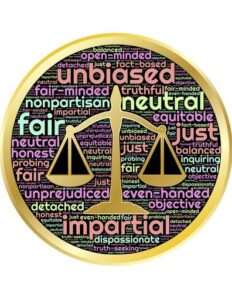“Rush to judgment” used to be a bad thing.
 Now “rushing to judge” is the only thing.
Now “rushing to judge” is the only thing.
Why is it important that “coming to a conclusion” should be a slow process?
And why shouldn’t we live our lives based on “Twitter-time”?
Watch our Truth in Two to find out why (full text below).
“Fair” and “impartial” and “justice” are not best served by “Twitter-time.”
 Subscribe to “Truth in Two” videos from Comenius (here). Mark is President of The Comenius Institute (website). Dr. Eckel spends time with Christian young people in public university (1 minute video), hosts a weekly radio program with diverse groups of guests (1 minute video), and interprets culture from a Christian vantage point (1 minute video). Consider becoming a Comenius patron (here).
Subscribe to “Truth in Two” videos from Comenius (here). Mark is President of The Comenius Institute (website). Dr. Eckel spends time with Christian young people in public university (1 minute video), hosts a weekly radio program with diverse groups of guests (1 minute video), and interprets culture from a Christian vantage point (1 minute video). Consider becoming a Comenius patron (here).
Picture Credit: Luke Renoe, Snappy Goat
FULL TEXT
Classic movies like Witness for the Prosecution movie or 12 Angry Men are too slow for today’s audience but too important to miss. Both films deal with coming to truth in a court of law. Witness for the Prosecution methodically follows evidence and the trial itself. 12 Angry Men focuses on the jury, twelve citizens deciding the verdict in a case. Both films are important for another reason: they focus on careful deliberation, there is no “rush to judgment.”
“Rush to judgment” used to mean, people moved too quickly.
Now, “rush to judgment” isn’t fast enough.
I call this “Twitter-time.” According to Twitter-time we must immediately publish whatever we see, hear, or experience. Why? Why do we think speed is imperative? On one hand, someone else might beat me to publishing: I want the notoriety, I want the most number of “clicks” or “likes.” My viral video may gain me instantaneous celebrity status.
On the other hand, publishing some bit of information may conform to my narrative of the world. Depending on my identity, gender, belief system what conforms to my viewpoint gets exposed. What doesn’t conform gives the opportunity to rush forward with information attacking other ideas.
Twitter-time demands that we speak out within moments of an event so that we are not accused of being on the wrong side. But at the Comenius Institute we believe Proverbs 18:17 is right. The first one to state his case seems right until the second person comes to examine him.
Be aware of stories rushed to press before there was an investigation. And don’t forget about the stories we never hear. They are rushed to a different place, so no one will ever hear.
Classic movies like Witness for the Prosecution or 12 Angry Men can teach us to slow down and not rush to judgment.
For Truth in Two, this is Dr. Mark Eckel, President of the Comenius Institute, personally seeking truth wherever it’s found.

